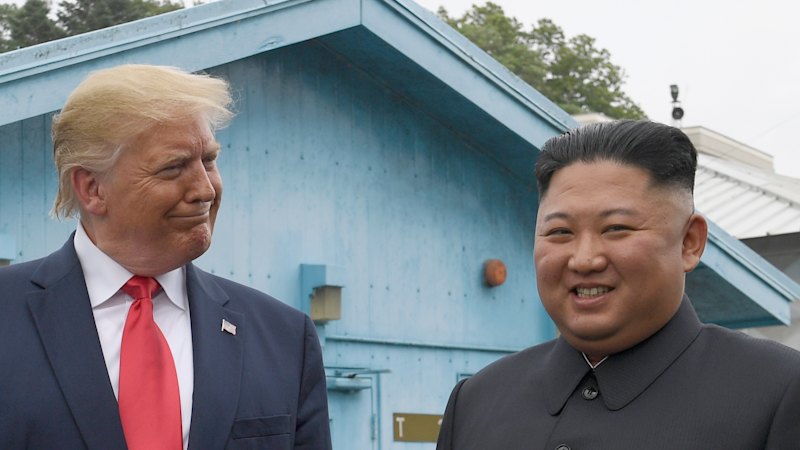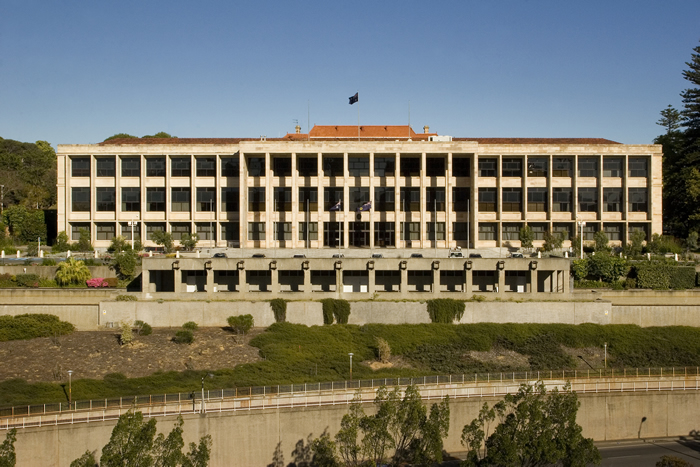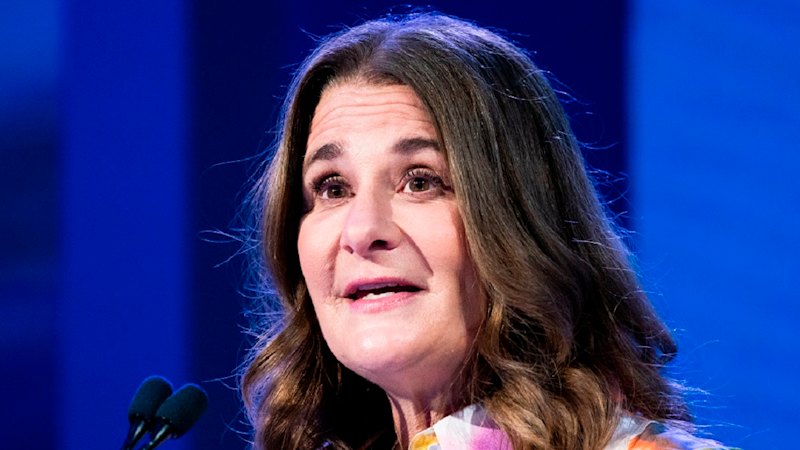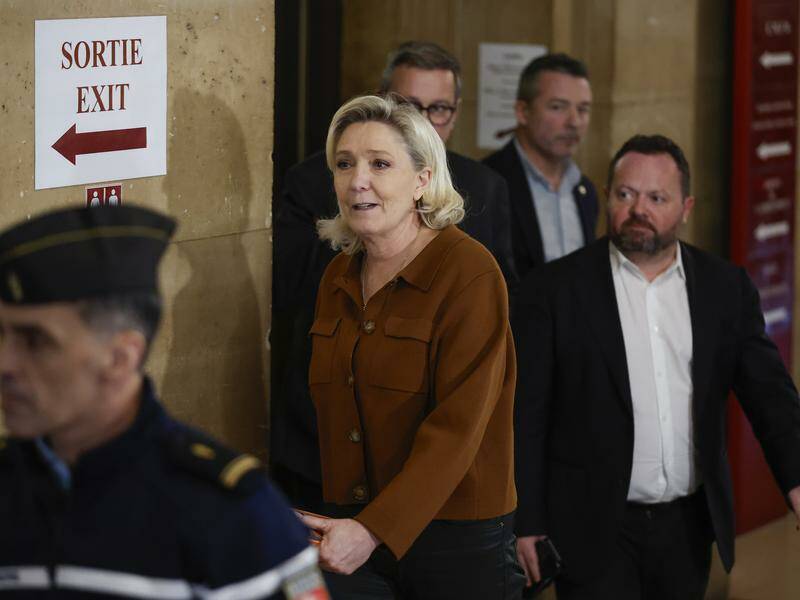
In the small village of Yugok-ri, South Korea, residents are experiencing a rare moment of peace as tensions along the border with North Korea have eased. After months of escalating propaganda exchanges marked by loudspeaker broadcasts from both sides, the sounds of conflict have faded, allowing this farming community to enjoy a quieter life.
Located near the Demilitarised Zone (DMZ), Yugok-ri has long been a symbol of the strained relationship between North and South Korea. On a humid September morning, villagers gathered in the town square, sipping sweetened coffee and enjoying crisp local apples. Many of the residents, now in their 70s, have spent decades in this isolated village, working in fields overshadowed by the looming presence of military forces.
The loudspeaker war between the two Koreas escalated last year after North Korea sent balloons filled with trash across the DMZ. In response, South Korea initiated its own broadcasts, which included popular music and anti-North Korean messages. For months, the noise became unbearable for residents like Cho Yong-hae, 74, who described the sound as haunting. “My house is in front of a field. Opening the door was unbearable,” Cho shared, reflecting on the relief felt since the broadcasts ceased in June.
In a significant diplomatic gesture, newly elected South Korean President Lee Jae Myung ordered the dismantling of the South’s propaganda loudspeakers to promote dialogue with Pyongyang. This decision has led to a profound change along the border, where military tensions have dominated the landscape for decades. The South’s propaganda machines were removed last month, and North Korea’s loudspeakers have also gone silent.
Life in the Shadow of Military Presence
Yugok-ri was established in 1973 under the authoritarian regime of President Park Chung-hee as part of an initiative to showcase South Korea’s rural development. The village is situated within a Civilian Control Line, a restricted area that requires special permission for entry. Families of residents must also seek approval to visit, further isolating the community.
Village leader Han Ho-hyeon, 64, moved to Yugok-ri as a child and has witnessed the village’s struggles firsthand. He expressed a desire for less military interference, stating, “We’ve endured 50-plus years of oppression. Now, no interference is our hope.” The presence of South Korean soldiers, who maintain a watchful eye over both the village and the nearby border, is a constant reminder of the underlying tensions.
As the geopolitical landscape shifts, hopes for reunification have fluctuated alongside various political administrations in South Korea. The recent rapprochement efforts initiated by President Lee aim to reverse the hardline policies of his predecessor, Yoon Suk Yeol. However, these initiatives have met with skepticism from North Korea, which has dismissed dialogue efforts as unrealistic.
Geopolitical Context and Future Prospects
The broader context of North-South relations is heavily influenced by North Korea’s evolving alliances. Recently, Kim Jong-un appeared alongside Chinese President Xi Jinping and Russian President Vladimir Putin during a military parade in Beijing, signaling a strengthening anti-Western bloc. This has raised concerns in Seoul and Washington about North Korea’s nuclear ambitions and its growing partnership with Russia and China.
Despite the optimism surrounding President Lee’s attempts at diplomacy, the reality on the ground remains complex. North Korea’s recent rejection of South Korea’s overtures, coupled with its announcement in January 2024 that it would no longer pursue peaceful unification, has left many wondering about the future of relations. Kim’s government has labelled South Korea as the “principal enemy,” complicating any potential dialogue.
As Yugok-ri’s residents reflect on their daily lives, the fading hope for unification stands in stark contrast to the increasingly tangible divisions between generations. Many younger South Koreans view reunification as unnecessary, while the village’s elderly residents continue to cling to the dream of a united Korea.
Han commented on the cyclical nature of political change in South Korea, expressing doubt that he would witness reunification in his lifetime. “When [former President] Moon Jae-in was in office, it sounded like reunification would come any moment. But now, with the conservative government, it feels like war could break out any moment,” he said.
The village’s population has dwindled to around 90, a stark decrease from its earlier numbers, as younger generations leave for better opportunities in urban areas. The isolation and military restrictions have contributed to a lack of vibrancy in village life, which now lacks the typical rural festivities found in other communities.
As Yugok-ri enters a new chapter marked by relative peace, its residents continue to navigate the complexities of life on the border, holding onto their memories of a time when hopes of unification felt more attainable. For now, the village remains a poignant reminder of the enduring conflict that shapes the Korean peninsula.







